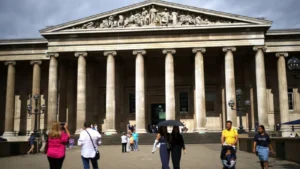
Manmeet Kaur, a 19-year-old Sikh woman from Srinagar, reportedly eloped with Shahid Nazir Bhat, a 28-year-old Muslim man on June 21. The next day, the couple submitted their marriage certificate to a local court in India-administered Kashmir’s Baramulla district.
According to Kaur, she converted to Islam last year of her own “free will.”
Kaur’s family didn’t approve of the marriage and registered a police complaint, accusing Bhat of kidnapping and intimidating Kaur.
Kaur was later married off to a Sikh man by her family.
Kaur’s marriage to a Muslim also triggered protests from Srinagar’s minority Sikh community.
Some Hindu nationalist politicians accused Kashmiri Muslims of forcefully converting Sikh girls to Islam on a regular basis.
A politicized affair
Kaur’s marriage put the spotlight on religious tensions in Muslim-majority Kashmir, with interfaith marriages often a source of acrimony between communities.
Experts say politics and religion often come into play in these marriages.
A violent separatist insurgency has marred the Himalayan region since the early 1990s. In August 2019, Prime Minister Narendra Modi’s Hindu nationalist government abrogated Kashmir’s special status, which triggered condemnation and protests from the majority Muslims.
Some political parties in Kashmir also accuse Modi of attempting to change the region’s demography.
Kaur’s marriage to Bhat became more controversial after a New Delhi-based right-wing Sikh politician Manjinder Singh Sirsa accused Kashmiri Muslims of waging “love jihad,” a term used by hard-line Hindus in India for Muslim men marrying non-Muslim women.
Sirsa demanded that anti-conversion laws be implemented in Kashmir to prevent Muslim men from marrying non-Muslim women.
Patriarchal tendencies
Some people in Kashmir are of the view that political groups are using religion to control women.
“Kaur was forced to remarry for the sake of honor. Sikh protesters exhibited bigotry, misogyny and regressive patriarchal attitudes in Kaur’s case. They don’t represent the whole community,” Chanmeet Kaur, a Sikh woman who married a Muslim man a decade ago, told DW.
Many Muslims and Sikhs in Srinagar say the two communities have lived peacefully in the region for decades, and that some groups are politicizing these marriages to further their interests.
“There are no forced conversions here,” Jagmohan Singh Raina, a local Sikh leader and chairman of the All Parties Sikh Coordination Committee (APSCC), told DW.
Singh said the Sikh community in Kashmir would not let anyone exploit the interfaith marriage issue for political gains.
Some Sikh leaders in Kashmir have urged their community to not politicize the issue of religious conversions and interfaith marriages.








